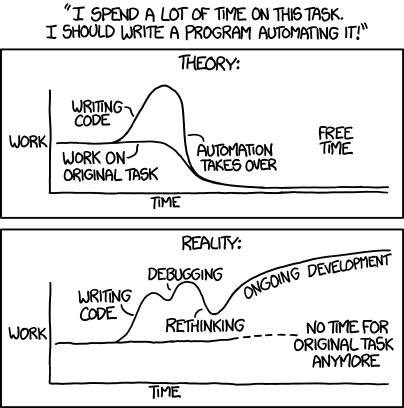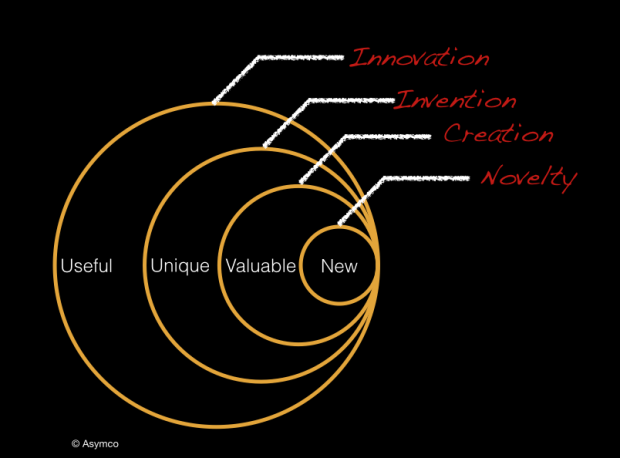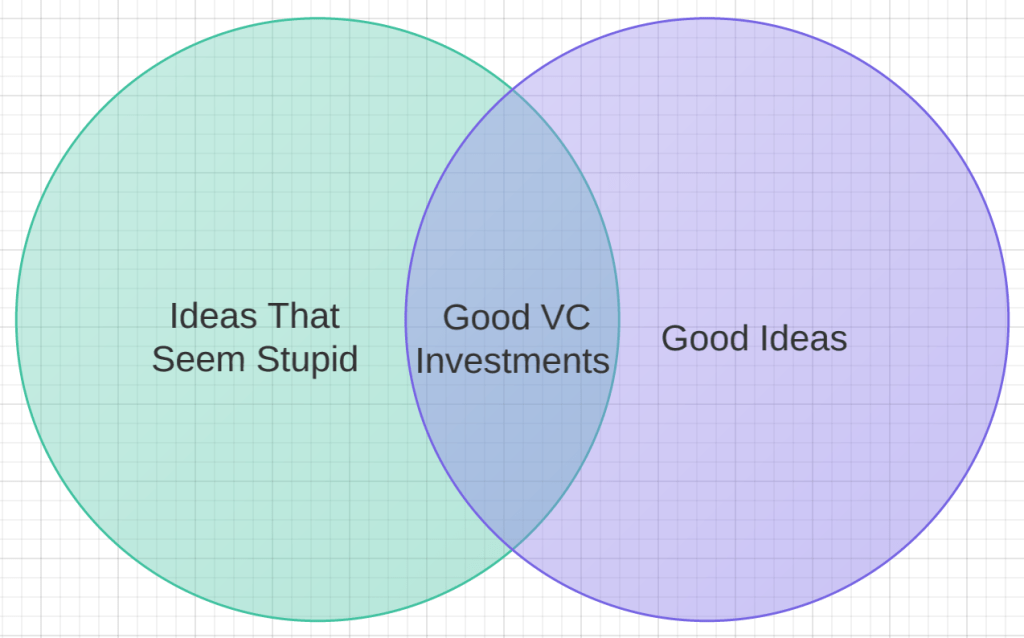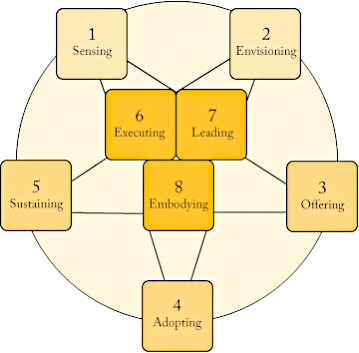Innovation is about finding a better way of doing something. Like many of the new development buzzwords (which many of them are over-used on many business documents), the concept of innovation originates from the world of business. It refers to the generation of new products through the process of creative entrepreneurship, putting it into production, and diffusing it more widely through increased sales. Innovation can be viewed as t he application of better solutions that meet new requirements, in-articulated needs, or existing market needs. This is accomplished through more effective products, processes, services, technologies, or ideas that are readily available to markets, governments and society. The term innovation can be defined as something original and, as a consequence, new, that “breaks into” the market or society.
Innoveracy: Misunderstanding Innovation article points out that there is a form of ignorance which seems to be universal: the inability to understand the concept and role of innovation. The way this is exhibited is in the misuse of the term and the inability to discern the difference between novelty, creation, invention and innovation. The result is a failure to understand the causes of success and failure in business and hence the conditions that lead to economic growth. The definition of innovation is easy to find but it seems to be hard to understand. Here is a simple taxonomy of related activities that put innovation in context:
- Novelty: Something new
- Creation: Something new and valuable
- Invention: Something new, having potential value through utility
- Innovation: Something new and uniquely useful
The taxonomy is illustrated with the following diagram.
The differences are also evident in the mechanisms that exist to protect the works: Novelties are usually not protectable, Creations are protected by copyright or trademark, Inventions can be protected for a limited time through patents (or kept secret) and Innovations can be protected through market competition but are not defensible through legal means.
Innovation is a lot of talked about nowdays as essential to businesses to do. Is innovation essential for development work? article tells that innovation has become central to the way development organisations go about their work. In November 2011, Bill Gates told the G20 that innovation was the key to development. Donors increasingly stress innovation as a key condition for funding, and many civil society organisations emphasise that innovation is central to the work they do.
Some innovation ideas are pretty simple, and some are much more complicated and even sound crazy when heard first. The is place for crazy sounding ideas: venture capitalists are gravely concerned that the tech startups they’re investing in just aren’t crazy enough:
Not all development problems require new solutions, sometimes you just need to use old things in a slightly new way. Development innovations may involve devising technology (such as a nanotech water treatment kit), creating a new approach (such as microfinance), finding a better way of delivering public services (such as one-stop egovernment service centres), identifying ways of working with communities (such as participation), or generating a management technique (such as organisation learning).
Theorists of innovation identify innovation itself as a brief moment of creativity, to be followed by the main routine work of producing and selling the innovation. When it comes to development, things are more complicated. Innovation needs to be viewed as tool, not master. Innovation is a process, not a one time event. Genuine innovation is valuable but rare.
There are many views on the innovation and innvation process. I try to collect together there some views I have found on-line. Hopefully they help you more than confuze. Managing complexity and reducing risk article has this drawing which I think pretty well describes innovation as done in product development:
8 essential practices of successful innovation from The Innovator’s Way shows essential practices in innovation process. Those practices are all integrated into a non-sequential, coherent whole and style in the person of the innovator.
In the IT work there is lots of work where a little thinking can be a source of innovation. Automating IT processes can be a huge time saver or it can fail depending on situation. XKCD comic strip Automation as illustrates this:

System integration is a critical element in project design article has an interesting project cost influence graphic. The recommendation is to involve a system integrator early in project design to help ensure high-quality projects that satisfy project requirements. Of course this article tries to market system integration services, but has also valid points to consider.
Core Contributor Loop (CTTDC) from Art Journal blog posting Blog Is The New Black tries to link inventing an idea to theory of entrepreneurship. It is essential to tune the engine by making improvements in product, marketing, code, design and operations.






5,279 Comments
Tomi Engdahl says:
Capacitor-based heat pumps see big boost in efficiency
While it’s not ready for production, it’s a step in the right direction.
https://arstechnica.com/science/2023/11/capacitor-based-heat-pumps-see-big-boost-in-efficiency/
Most existing versions of these systems rely on the compression of a class of chemicals called hydrofluorocarbons, gasses that were chosen because they have a far smaller impact on the ozone layer than earlier refrigerants. Unfortunately, they are also extremely potent greenhouse gasses, with a short-term impact several thousand times that of carbon dioxide.
Alternate technologies have been tested, but all of them have at least one major drawback in comparison to gas compression. In a paper released in today’s issue of Science, however, researchers describe progress on a form of heat pump that is built around a capacitor that changes temperature as it’s charged and discharged. Because the energy spent while charging it can be used on discharge, the system has the potential to be highly efficient.
Tomi Engdahl says:
https://www.verkkouutiset.fi/a/astronautit-hukkasivat-tyokalupakkinsa-yotaivaalle-uusi-hohtava-kohde/#ef253791
Tomi Engdahl says:
https://www.helsinki.fi/fi/uutiset/kvanttiteknologia/kvanttiteknologia-vauhdittaa-laakekehitysta-ja-edistaa-tasmalaakkeita?fbclid=IwAR2IYtUwPh7X0bLjm_RXiUpz2aoxPmP9kGpXXbKcuuULBlMI8ZPM3zx_ZAE_aem_AfmkGEam2KGFWLojH4t9CvWhuLvXxwUh6g6OREPp1_KvkK0q-clyIybcndWM948Q-G_uzAvBOmUGFaNHK1MhNpLz
Tomi Engdahl says:
https://neurosciencenews.com/child-stress-genetics-brain-25203/
Tomi Engdahl says:
Just One All-Nighter Can Rewire The Brain And Reverse Feelings Of Depression For Days
Sleepless nights are giving scientists clues that could help them develop new antidepressants.
https://www.iflscience.com/just-one-all-nighter-can-rewire-the-brain-and-reverse-feelings-of-depression-for-days-71630
Tomi Engdahl says:
https://sponsored.bloomberg.com/article/a-new-era-of-radical-collaboration?utm_medium=social&utm_id=customcontent-Nokia&utm_source=Facebook&utm_campaign=Business-Paid&utm_content=EU-Ad2&fbclid=IwAR3HQTzDj3rDChk0gf03l0hoWi05N5AvzKTn1rmmX_EPcI0tr6edZpCsxFI_aem_AdFa9xgMLw62oOiixEuXLAFJWyZHa8xyQaBWRDwaZi36w6KVF7V6P13hhvAIXUJ6KY4YTTbRWTCQudrIQyP9apRr
Tomi Engdahl says:
https://tyopaikat.oikotie.fi/tyontekijalle/artikkelit/oletko-introvertti-vai-ekstrovertti-todennakoisesti-vahan-molempia-ja-lisaksi-paljon-paljon-muuta
Tomi Engdahl says:
Test Processor With New Thermal Transistors Cools Chip Without Moving Parts
News
By Matthew Connatser published 6 days ago
Solving thermal density with new transistor architecture.
https://www.tomshardware.com/news/test-processor-with-new-thermal-transistors-run-13-times-cooler
Tomi Engdahl says:
When A Scientist At A Medical Equipment Laboratory Investigated His Own Haunting
In 1998 a scientist began seeing a strange apparition at his lab, and decided to find the culprit.
https://www.iflscience.com/when-a-scientist-at-a-medical-equipment-laboratory-investigated-his-own-haunting-71549
Tomi Engdahl says:
In a first, scientists light up blue LED with an AA battery
Conventional LEDs require 4V for luminance, which is higher than the industry target of 3.7 V that a lithium-ion battery can provide.
https://interestingengineering.com/innovation/blue-led-ultralow-turn-on-voltage
Tomi Engdahl says:
https://insinoori-lehti.fi/tasta-on-kysymys/viihdetta-toisten-virheista/
Tomi Engdahl says:
How to see trees and plants in a whole new light
A hyperspectral snapshot captures all the light in a scene, not just colours or infrared light. The extra information is useful in many applications, from agriculture and conservation to forensics and food safety.
https://www.aalto.fi/en/news/how-to-see-trees-and-plants-in-a-whole-new-light
Tomi Engdahl says:
https://www.tivi.fi/uutiset/opiskelija-teki-vahingossa-mullistavan-keksinnon-potentiaalia-muuttaa-koko-elektroniikka-ala-aivan-taysin/fb4f8994-b6ef-4fe7-b4b1-6dcbb7a85b05
Tomi Engdahl says:
https://researchfeatures.com/celebrating-father-lithium-ion-battery/
Tomi Engdahl says:
https://spectrum.ieee.org/photon-upconversion
Tomi Engdahl says:
https://phys.org/news/2023-09-atlas-tightest-limits-magnetic-monopoles.html
Tomi Engdahl says:
https://www.advancedsciencenews.com/edible-electronics-food-supercapacitor-medical-applications/
Tomi Engdahl says:
https://spectrum.ieee.org/underwater-communication-low-power?share_id=7864447&socialux=facebook&utm_campaign=RebelMouse&utm_content=IEEE+Spectrum&utm_medium=social&utm_source=facebook&fbclid=IwAR3oZKDNWEkR7_MUoKnYIF9BEg8ST08jGiSdv0HoZBjEqhPrZ573TCAmjDE
Tomi Engdahl says:
See-Through Sensors Hide Eye-Tracking in Plain Sight Graphene and quantum dots turn electronics transparent
https://spectrum.ieee.org/eye-tracker-seethrough
Tomi Engdahl says:
SCIENTISTS PUZZLED TO FIND PLASTIC FRAGMENTS INSIDE HUMAN HEARTS
“EVERYWHERE SCIENTISTS LOOK FOR MICROPLASTICS, THEY’VE FOUND THEM.”
https://futurism.com/neoscope/microplastics-human-heart
Tomi Engdahl says:
Metalli korjasi itse halkeamansa – tulos oli kaikin tavoin odottamaton
Yhtälöiden mukaan näin ei pitäisi käydä.
https://www.hs.fi/tiede/art-2000009778853.html
Tomi Engdahl says:
New physics-based self-learning machines could replace current artificial neural networks and save energy
https://techxplore.com/news/2023-09-physics-based-self-learning-machines-current-artificial.html#google_vignette
Tomi Engdahl says:
https://www.helsinki.fi/fi/uutiset/avaruus/simulaatio-loysi-ratkaisuja-avaruusfysiikan-keskeiseen-arvoitukseen?utm_source=facebook&utm_medium=social_owned&fbclid=IwAR0__0MNtEhNOXgmPzlMcQpQ3lTkNPDvPwGR_wRYpcofiULqrh091aPGL7w_aem_AebzmKUbfWCHdJ3L1BGY9zQ7fOc9Qm7WkrJpYduKkwoYi0OdmvUdzLtIdGDDw7YOSmaXjTiuj3AiQ9iFhi9jgJAs
Tomi Engdahl says:
It’s Possible To Extract Audio From A Still, Soundless Image
What are they saying? Amazingly, it’s possible to find out.
https://www.iflscience.com/its-possible-to-extract-audio-from-a-still-soundless-image-70869
Tomi Engdahl says:
We used to get excited about technology. What happened?
Innovation that truly serves us all is in scarce supply. That’s a problem.
https://www.technologyreview.com/2022/10/21/1061260/innovation-technology-what-happened/
This piece is from our forthcoming mortality-themed issue, available from 26 October. If you want to read it when it comes out, you can subscribe to MIT Technology Review for as little as $80 a year.
On a recent evening, I sat at home scrolling through my Twitter feed, which—since I’m a philosopher who studies AI and data—is always filled with the latest tech news. After a while, I noticed a heaviness growing in the pit of my stomach, that telltale sign that you are not having a good time. But why? I wasn’t reading news about politics, or the climate crisis, or the pandemic—the usual sources of doomscrolling ennui. I stopped and reflected for a moment. What had I just been looking at?
Tomi Engdahl says:
SUPERHUMAN SPEED: HOW AUTONOMOUS DRONES BEAT THE BEST HUMAN RACERS
Processing on the fly gives extreme drones the edge
https://spectrum.ieee.org/ai-drone-racing
Tomi Engdahl says:
MilliMobile is a tiny, self-driving robot powered only by light and radio waves
https://techxplore.com/news/2023-09-millimobile-tiny-self-driving-robot-powered.html#google_vignette
Tomi Engdahl says:
Nanofluidic device generates power with saltwater
https://techxplore.com/news/2023-09-nanofluidic-device-generates-power-saltwater.html
Tomi Engdahl says:
https://www.atlasobscura.com/articles/holy-food-cults-religion-american-history
Tomi Engdahl says:
https://puheenvuoro.uusisuomi.fi/hannusinivirta/kvanttimekaniikan-ihmeellisyyksia/
Tomi Engdahl says:
https://tekniikanmaailma.fi/tiesitko-eetterimoottorin-keksija-huijasi-sijoittajia-lahes-25-vuotta-paineilman-avulla/
Tomi Engdahl says:
Kvanttijin ja -jang ikuistettiin reaaliajassa
Tutkijat ovat onnistuneet visualisoimaan lomittuneita fotoneja ennätysajassa. Yleensä siihen kuluu useita päiviä.
https://tieku.fi/luonto/kvanttijin-ja-jang-ikuistettiin-reaaliajassa
Tomi Engdahl says:
That Song You Hear in Your Dream Can Be Brought Into The Real World
https://www.sciencealert.com/that-song-you-hear-in-your-dream-can-be-brought-into-the-real-world
Tomi Engdahl says:
Health effects associated with consumption of unprocessed red meat: a Burden of Proof study
https://www.nature.com/articles/s41591-022-01968-z
Tomi Engdahl says:
https://www.healthdata.org/research-analysis/library/health-effects-associated-consumption-unprocessed-red-meat-burden-proof
Tomi Engdahl says:
The entire quantum Universe exists inside a single atom
By probing the Universe on atomic scales and smaller, we can reveal the entirety of the Standard Model, and with it, the quantum Universe.
https://bigthink.com/starts-with-a-bang/entire-quantum-universe-inside-single-atom/#Echobox=1692889337-1
Tomi Engdahl says:
How to Engineer a Reliable $1 Sensor for Safe Drinking Water A graphene-based sensor uses AI to detect tiny levels of harmful bacteria and heavy metals
https://spectrum.ieee.org/water-sensor
Tomi Engdahl says:
Visualizing the mysterious dance: Quantum entanglement of photons captured in real-time
https://phys.org/news/2023-08-visualizing-mysterious-quantum-entanglement-photons.html
Tomi Engdahl says:
Earth Just Received A Laser-Beamed Message From 16 Million Kilometers Away
This could change the future of spacecraft communication.
https://www.iflscience.com/earth-just-received-a-laser-beamed-message-from-16-million-kilometers-away-71634
Tomi Engdahl says:
Sam Altman says successful people ‘believe in themselves almost to the point of delusion’—that’s frightening, says expert
https://www.cnbc.com/2023/11/20/leadership-expert-on-sam-altman-and-delusionally-overconfident-ceos.html?utm_term=Autofeed&utm_medium=Social&utm_content=Intl&utm_source=Facebook&fbclid=IwAR0nZVG1uVEzzF91li9r_Q4Vs0TbiXJ971LtUx28nlN6RpXI2QswWErku8U#Echobox=1700527123
Just about every highly successful person has confidence. Some, like ex-OpenAI CEO Sam Altman, believe in taking it to an extreme — and that’s when they turn from inspiring to frightening, says a leadership expert.
“Organizations should be very frightened of having CEOs who are delusionally overconfident,” Don Moore, a leadership and communication professor at the University of California-Berkeley’s Haas School of Business, tells CNBC Make It.
What’s more clear is the 38-year-old’s leadership ethos: One of his top keys to success is to “have almost too much self-belief,” he wrote in a 2019 blog post.
“Self-belief is immensely powerful,” wrote Altman. “The most successful people I know believe in themselves almost to the point of delusion.”
Altman is “far from the first entrepreneur to have endorsed the idea that you have to believe in yourself, above all else” to succeed, says Moore. But overconfidence can pose problems for a leader, along with anyone who buys into their delusion or is otherwise affected by it, he notes.
Here’s why.
The pros and cons of extreme overconfidence
Extreme overconfidence can help people rise to lofty heights. It can also make them and the people around them prone to “dysfunctions, perversities [and] errors,” especially when they’re too arrogant to plan for foreseeable threats, says Moore.
Overconfident leaders often convince people to follow them, from employees to investors and board members, only to eventually fall short of the outsize expectations their confidence created, Moore says.
“That’s part of why voters are so often disappointed by the candidates that they help vote into office,” he explains. “We pick the ones who are making grandiose promises, who inspire our hopes for reform, but reality is complicated and the changes they can actually introduce often fall short of what their most enthusiastic supporters hope for.”
How to balance confidence with self-awareness
In Altman’s blog post, he identified the No. 1 thing any overconfident leader needs to do to prevent catastrophic mistakes or widespread alienation: Get better at accepting criticism.
Seeking out valid criticism can be “hard and often painful,” but it’s necessary because “it is what separates self-belief from self-delusion,” Altman wrote.
Moore agrees. He also says it’s easy for leaders to “pay lip service” to the idea of accepting criticism, and much harder to actually follow through.
“I think this is a challenge for every leader,” Moore says. “Courageous leaders need to seek out that sort of criticism, ask themselves how they’re messing up, anticipate the errors that they’re most likely to be making, and listen hard when criticism comes their way.”
Tomi Engdahl says:
Tackling climate change with bugs and batteries
The challenge of achieving carbon neutrality spans many aspects of society, so it is fitting that research tackling the problem does too
https://www.nature.com/articles/d42473-023-00329-9?utm_source=facebook&utm_medium=social&utm_campaign=SSCR_FOCAL_ENGM_GL_PCFU_CFULF_WSD_SDG23&fbclid=IwAR2Cdqu-5cPkOO8TXQHuoUwIdTNQ4ElPu5ZkS3ZQuJR9puxlIgIAvLcX_2k_aem_AZkSQb0ZUOMUKYlyNfs02_7sIv5cvhUvehNp6FWqA6g28zlNZ1yaiV-DaBAJOr5ke5-4EZ6Dpp2OIM7hSqkCN60Y
Tomi Engdahl says:
Väitöskirja paljastaa päiväkotilasten hyperhauskuuden, josta aikuiset eivät tajua mitään
https://www.hs.fi/kaupunki/art-2000010003234.html
Pienten lasten huumorista väitöskirjan kirjoittanut Tuula Stenius sanoo, että aikuisten pitäisi suhtautua lasten huumoriin lempeämmin.
Tomi Engdahl says:
This 17-Year-Old Designed a Motor That Could Potentially Transform the Electric Car Industry
Robert Sansone’s research could pave the way for the sustainable manufacturing of electric vehicles that do not require rare-earth magnets
https://www.smithsonianmag.com/innovation/this-17-year-old-designed-a-motor-that-could-potentially-transform-the-electric-car-industry-180980550/
Tomi Engdahl says:
57 vuotta vanha ennustus toteutui: Uudenlainen magneettisuuden laji löytyi
Kineettinen magneettisuus vaatii toteutuakseen sähköä.
https://www.tekniikkatalous.fi/uutiset/57-vuotta-vanha-ennustus-toteutui-uudenlainen-magneettisuuden-laji-loytyi/d330b09a-fe99-4468-b93b-84a632f241af
Sveitsiläisjohtoinen fyysikkoryhmä on löytänyt uudenlaisen magneettisuuden lajin, kineettisen magnetismin. Tämä magneettisuuden muoto havaittiin kahden puolijohdemateriaalin, molybdeenidiselenidin (MoSe₂) ja volframidisulfidin (WS₂) rajapinnalla, lehdistötiedotteessa kerrotaan.
Näiden puolijohteiden rajapinta muuttui ohuen ohueksi magneetiksi, kun Atac İmamoğlun johtamat tutkijat syöttivät sähköjännitteen avulla rajapinnan kaksiulotteiseen hilaan ylimääräisiä elektroneja. Näyte oli jäähdytetty 0,1 kelvinin lämpötilaan eli 0,1 asteen päähän absoluuttisesta nollapisteestä.
A new kind of magnetism
https://ethz.ch/en/news-and-events/eth-news/news/2023/11/a-new-kind-of-magnetism.html
ETH Zurich researchers have detected a new type of magnetism in an artificially produced material. The material becomes ferromagnetic through minimization of the kinetic energy of its electrons.
Tomi Engdahl says:
https://arstechnica.com/science/2023/11/study-yields-new-insights-into-why-some-people-get-headaches-from-red-wine/
Tomi Engdahl says:
Scientists Warn That AI Threatens Science Itself
“Our tendency to anthropomorphize machines and trust models as human-like truth-tellers — consuming and spreading the bad information that they produce in the process — is uniquely worrying for the future of science.”
https://futurism.com/scientists-ai-threatens-science
Tomi Engdahl says:
According to the latest results, the exotic material may be a lot more conventional than we thought.
Scientists Disappointed to Find That Antimatter Falls When You Drop It
“The bottom line is that there’s no free lunch.”
https://futurism.com/scientists-disappointed-antimatter-falls-drop?fbclid=IwAR01VUntPT4H2pfEKKBU_az4p4Qv765Ek4gfpKnre9-cTacsF0YpZwGcyeY
Tomi Engdahl says:
https://www.iflscience.com/people-are-still-very-confused-about-how-mirrors-work-71770?fbclid=IwAR2haKHb2kdzcxoPW5LARtq6AxMZi0srQtkNRVnEtky8vC6hlv_Yp_UT82U
Tomi Engdahl says:
Scientists Puzzled by High Energy Signal Coming From Seemingly Empty Space
“There was nothing.”
https://futurism.com/high-energy-cosmic-ray-empty-space
Tomi Engdahl says:
https://www.reviewofoptometry.com/article/an-antihypertensive-medication-may-increase-glaucoma-risk